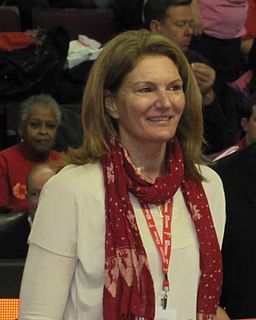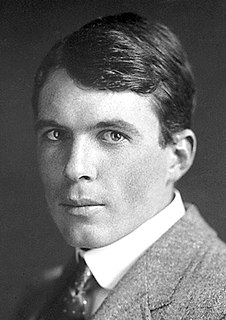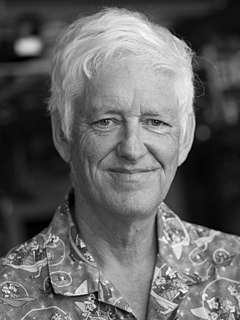A Quote by Noam Chomsky
One contribution scientists can and should make is to be clear and explicit about the limits of scientific understanding, a matter that is particularly important in societies where people are trained to defer to alleged experts.
Related Quotes
The responsibility for the creation of new scientific knowledge - and for most of its application - rests on that small body of men and women who understand the fundamental laws of nature and are skilled in the techniques of scientific research. We shall have rapid or slow advance on any scientific frontier depending on the number of highly qualified and trained scientists exploring it.
The need for general scientific understanding by the public has never been larger, and the penalty for scientific illiteracy never harsher. Lack of scientific fundamentals causes people to make foolish decisions about issues such as the toxicity of chemicals, the efficacy of medicines, the changes in the global climate.
Something happens in school sometimes where you're like, 'Oh, I'm not an expert, and I have to defer to people who are.' And it happens not just in school: it happens in religion, too. Defer to the experts. A printing press is a big deal - they got the Bible, and all of a sudden they could read it for themselves.
It seems to me that there is a good deal of ballyhoo about scientific method. I venture to think that the people who talk most about it are the people who do least about it. Scientific method is what working scientists do, not what other people or even they themselves may say about it. No working scientist, when he plans an experiment in the laboratory, asks himself whether he is being properly scientific, nor is he interested in whatever method he may be using as method.
I feel very strongly indeed that a Cambridge education for our scientists should include some contact with the humanistic side. The gift of expression is important to them as scientists; the best research is wasted when it is extremely difficult to discover what it is all about ... It is even more important when scientists are called upon to play their part in the world of affairs, as is happening to an increasing extent.
As a Christian, but also as a scientist responsible for overseeing the Human Genome Project, one of my concerns has been the limits on applications of our understanding of the genome. Should there be limits? I think there should. I think the public has expressed their concern about ways this information might be misused.
How can you make informed decisions ... ? The key seems to be to gather experts who are knowledgeable and passionate about the subject matter, and have them cooperatively discuss a series of questions designed to explore the limits of technical feasibility.
They must strive to reach the best decision rather than to persuade each other.
Al Jazeera should understand the societies, should understand the culture of the civilisation, should understand the dynamics of the societies, should be part of this understanding; and on the other level, Al Jazeera should concentrate on the margin rather than the centre. It means that Al Jazeera should be close to the public.




































